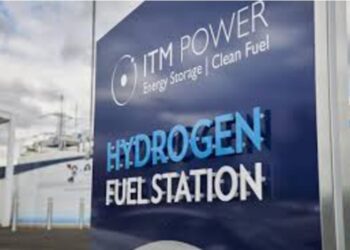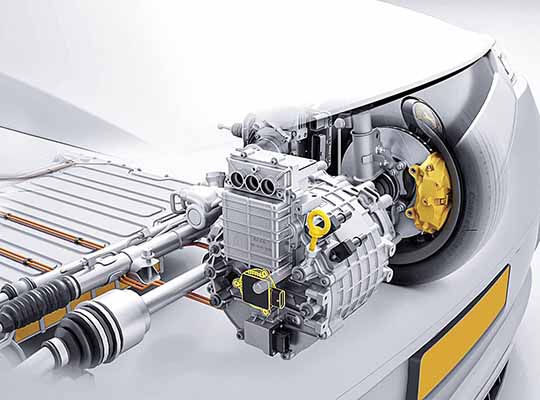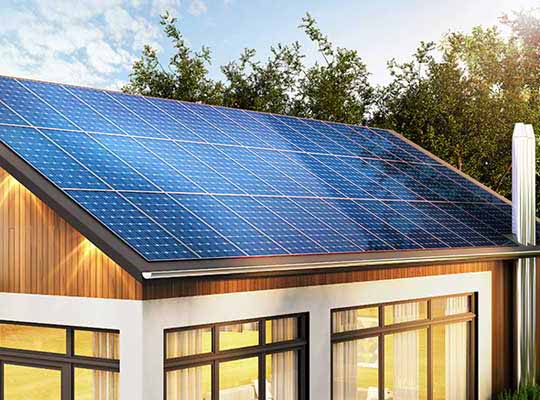Trina Solar, the leading global PV and smart energy total solution provider, has been supporting Uzbekistan’s transition to renewable energy.
The Uzbekistan government’s 2020-2030 power plan set a target of 5GW of additional solar power capacity.
Even though Uzbekistan experiences 330 sunny days annually, solar power today accounts for less than one percent of the energy mix. But International Renewable Energy Agency (IRENA) figures show Uzbekistan’s solar energy sector is experiencing strong growth. There was only 4MW of solar capacity in 2020. Then it was 104MW in 2021 and 253MW last year, says IRENA.
The large jump in 2021 was due to the 100MW Uzbekistan Navoi utility-scale solar farm that uses TrinaTracker Vanguard 2P trackers.
Todd Li, President of Trina Solar Asia Pacific, says: “For Uzbekistan to meet rising energy needs while reducing greenhouse gas emissions, the country needs continue to diversify energy generation and deploy alternative energy resources, such as solar.”
He adds: “Uzbekistan is a relatively untapped, but growing market, for solar energy. We believe we can fill the market gap with our market-leading innovative solar modules, trackers, and integrated solutions.”
Uzbekistan’s solar energy capacity remains low as compared to other countries. For example, neighbouring Kazakhstan had 2,031MW of solar energy capacity at the end of 2022, says IRENA.
IRENA in its report – entitled Solar Energy Policy in Uzbekistan: A Roadmap – highlighted there are countries with less sunlight than Uzbekistan, such China and Greece, that have a higher share of solar energy in the country’s energy consumption.
The reason for this disparity, according to the report, is Uzbekistan grapples with an array of barriers that hinders its renewable energy ambitions. First, the over-reliance on country’s fossil reserves. It states that by 2030, Uzbekistan’s population will increase by three million to 37 million fuelling demand for more energy. Given the current consumption trends, the country’s energy deficit may amount to 65% of total demand in less than a decade, it says. To meet rising demand, the energy system will have to improve and production will have to increase by 70-75 percent, it adds.
For Uzbekistan to reach its full solar power potential, it needs to develop solar projects using rooftops and vacant land. Trina Solar, being the world’s leading PV and smart energy total solutions provider, can cater to all market segments in Uzbekistan: residential, commercial and industrial (C&I), and utility-scale.
Trina Solar offers n-type and p-type PV modules for different Uzbekistan solar projects. The new n-type technology provides a further boost to the module’s power generation. Trina Solar’s new Vertex N NEG21C.20 bi-facial module is a high power module. It has maximum efficiency of 22.4% and power output up to 695W, delivering a lower levelized cost of energy (LCOE) and reduced balance of system (BOS) cost. Meanwhile, Trina Solar p-type modules include the Vertex DEG21C.20 and Vertex DEG20C.20. The Vertex DEG21C.20 is a bifacial dual-glass p-type module that uses 210mm-size solar cells. It delivers power output up to 665W and efficiency up to 21.4%. The Vertex DEG20C.20, is a bifacial dual-glass module that delivers maximum efficiency of 21.4% and maximum power output of 605W. Customers can select the suitable technology to best optimize their solar projects.
Both the n-type and p-type modules use 210 Technology, 210mm-long solar cells, that have more power than earlier solar cells. The modules incorporate state-of-the-art technologies such as multi-busbar for greater light absorption, non-destructive cutting technology and high-density encapsulation to optimize the module’s efficiency.
Besides solar modules, Trina Solar is the only original equipment manufacturer (OEM) that produces trackers – providing integrative module and tracker solution from a single source.
Trina Solar is also launching its second-generation Vanguard 2P tracker, an upgrade from the earlier version, which had a single motor. The new version has three motors powering each actuator, significantly reducing the number of mechanical parts, making the tracker quicker and easier to install, and reducing maintenance costs over the product’s lifecycle.
The Vanguard 2P is designed to withstand difficult weather conditions including Uzbekistan’s climate: hot summers to extreme cold temperatures. The shorter and wider form factor of TrinaTracker’s 2P Vanguard tracker, in combination with its patented spherical bearings, further enables sites with uneven terrain, such as those found in Uzbekistan.
The new generation Vanguard 2P has also undergone extensive wind tunnel tests and has the same industry leading low pile count – as low as seven – per tracker, contributing to lower balance of system (BOS) cost. Further features, such as, the ‘Super Track’ algorithm and ‘Trina Smart Cloud’, further improves the tracker’s performance to maximize the module’s power performance. These trackers are compatible with ultra-high-power bi-facial modules, contributing to higher energy output and better financial returns for investors.













